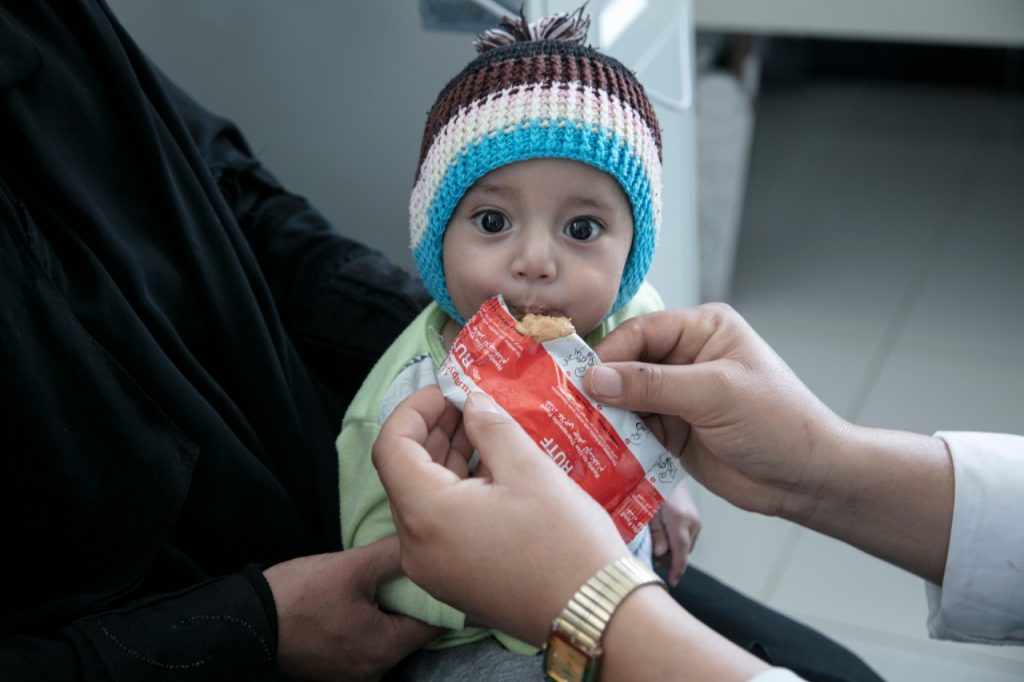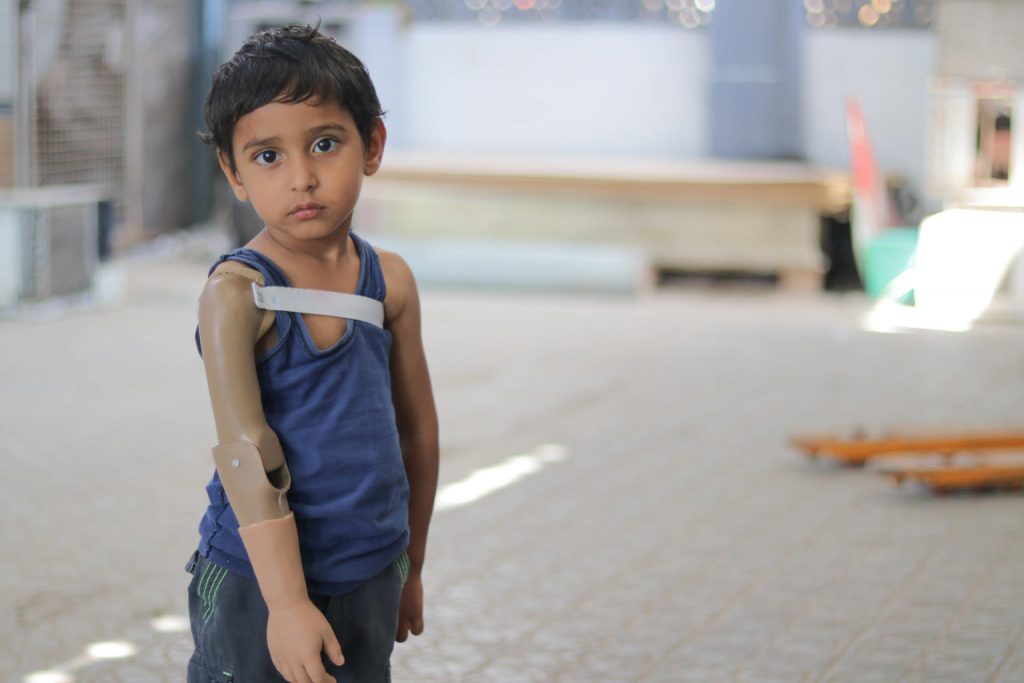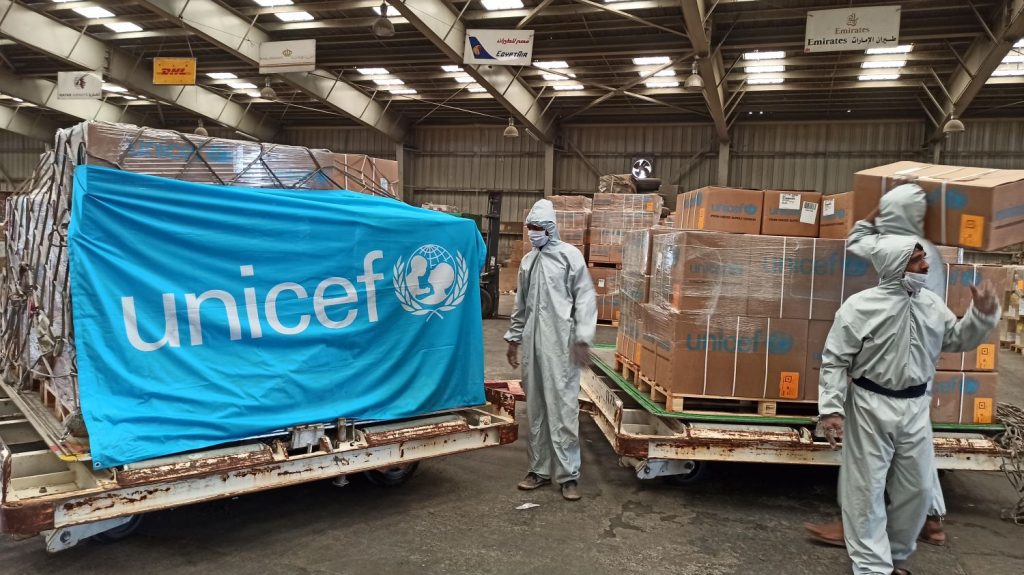Since war broke out in 2015, Yemen has continued to dominate our TV screens, news-feeds and social media platforms.
From bombings to hunger, children in Yemen have suffered immensely. Today, it is the world’s worst humanitarian disaster.
Right now, 4 out of 5 Yemeni children need urgent humanitarian help to survive. Over 2 million – are dangerously malnourished and need immediate treatment, while more than 400,000 are now facing starvation.
Continue reading and discover six things you should know about Yemen.
1. More Than 12 Million Children Need Humanitarian Aid
UNICEF’s latest figures show that 12.9 million Yemeni children are in need of urgent humanitarian aid and assistance.
Ongoing conflict in the region, inflation, war in Europe, climate change and COVID-19 have completely devastated the population with children bearing the brunt of the hardship.
2. 400,000 Children Are Suffering With Starvation
Children in Yemen are facing unprecedented levels of hunger. War has caused food shortages and inflation has made everyday staples too expensive to buy.
As a result, 2 million children are suffering from malnutrition, while 400,000 are suffering from Severe Acute Malnutrition. This is most deadly form of undernutrition and means death without urgent treatment.
3. Yemen Imported 30% Of Its Wheat From Ukraine
Yemen is almost entirely dependent on food imports and the war in Ukraine has caused food prices to skyrocket and supply to dwindle.
Yemen was directly affected by the war in Ukraine as the country used to import 30% of its wheat from Ukraine.
Food prices in Yemen have already doubled since last year and the country’s years of fighting have led to an economic collapse.
4. Every 10 Minutes a Child Dies From a Preventable Cause
Right now in Yemen children are dying needlessly and from causes that our entirely preventable. Malnutrition is one of the leading causes of child death in Yemen and is easily treatable.
A simple paste made from peanuts, oil, sugar, milk powder and vitamin and mineral supplements can revive a severely malnourished child in a matter of days. Ready-to-Use-Therapeutic-Food, like peanut paste, is UNICEF’s most effective tool for treating Severe Acute Malnutrition.
It takes just 3 sachets of peanut paste per day, for approximately 6 weeks, to cure malnutrition.

Moheb Alnabi, a seven-months-old boy, is fed ready-to-use therapeutic food by Dr. Ibrahim Mohammed in Sana’a, Yemen.
5. Children Are Paying the Highest Price
Since the conflict escalated in Yemen seven years ago, the UN has verified that more than 10,200 children have been killed or injured. The actual number is likely much higher.
Today, less than half of the country’s health facilities are operational, while more than 2 million children are out of school.
As fighting continues in Eastern and Southern parts of the country, more than 1.8 million children are now internally displaced and without a home or bed to call their own. These children have lost their right to live, play and learn in a safe space free from violence and fear.

Rayan, now three years old, lost his arm last year when fighting escalated in Aden, Yemen.
6. UNICEF Supplies Are Reaching Yemen
UNICEF’s life-saving humanitarian aid is reaching Yemen. Since the crisis began, we have reached more than 4 million children with over 3,000 tonnes of life-saving supplies, including emergency RUTF food, safe drinking water, medicine and hygiene kits.
In 2021 alone, UNICEF has helped over 5 million people in Yemen gain access to safe drinking water. We have treated 320,000 children for Severe Acute Malnutrition. We have vaccinated 4 million children against Measles and Polio.
We are on the ground in Aden, Sanaa, Ibb, Hodeidah and Saada with a team of more than 250 staff dedicated to helping children.

On 30 May 2020, supplies for the COVID-19 response arrive on a UNICEF chartered plane at Sana’a airport in Yemen.
None of what we do for children would be possible without people like you. It is your kindness and generosity that saves lives. It’s your action that counts.
Please help us continue our life-saving work in Yemen by donating now.
We rely entirely on contributions from our supporters to deliver our lifesaving work and programmes for children around the world.


